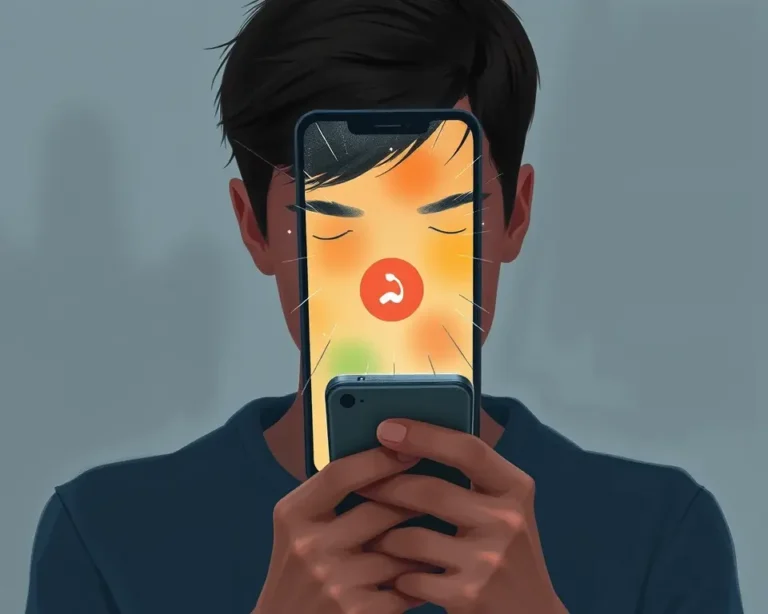The digital age has ushered in an era of unprecedented access to health and fitness tools. Fitness apps, designed to motivate and guide users toward healthier lifestyles, have become ubiquitous. However, a growing body of research suggests that these seemingly benign tools may harbor a darker side, potentially triggering eating disorders and exacerbating body image issues, especially among vulnerable populations.
The Allure of Tracking: A Double-Edged Sword
With over 300 million users worldwide, diet and fitness apps are often lauded for their ability to promote healthy habits. These apps offer a range of features, from calorie counting and exercise tracking to goal setting and progress monitoring. The appeal lies in the sense of control and accountability they provide, empowering individuals to take charge of their health journeys.
However, this focus on quantification and measurement can be a slippery slope. A recent study from Flinders University in Australia, which reviewed 38 international studies, has revealed “concerning links” between the use of fitness apps and an increased risk of developing disordered eating patterns, negative body image, and compulsive exercise.
The Pressure to Perform: Unintended Consequences
Isabella Anderberg, the lead author of the Flinders University study, highlights the potential for these apps to create “pressure to meet goals, concerns about body image, as well as provoking feelings of guilt if goals aren’t achieved.” This pressure can be particularly harmful for individuals with pre-existing vulnerabilities, such as those with a history of eating disorders or body image concerns.
The study categorised apps into four types: fitness-tracking apps, diet-only apps, apps that combine both, and apps that look at fitness and diet separately. It found that people who used health and fitness apps regularly were more likely to have problematic habits linked with food and exercise.
The Vulnerable and the Apps
The Flinders University research found young adults who use diet and fitness apps have greater disordered eating symptoms, such as harmful or restrictive diets, and have negative thoughts about body image when compared to those that don’t use them.
Decoding the Dark Side: How Apps Can Trigger Disordered Eating
Several factors contribute to the potential for fitness apps to trigger or worsen eating disorders.
Obsession with Numbers:
The emphasis on calorie counting, weight tracking, and other metrics can lead to an unhealthy obsession with numbers. This can foster a rigid and inflexible approach to eating and exercise, where individuals become overly focused on achieving specific targets, regardless of their overall well-being.
Restrictive Diets:
Many diet apps promote calorie restriction and elimination of certain food groups, which can trigger restrictive eating patterns. This can lead to nutritional deficiencies, metabolic imbalances, and an increased risk of developing eating disorders like anorexia nervosa.
Compulsive Exercise:
Fitness tracking apps can encourage compulsive exercise, where individuals feel compelled to exercise excessively to burn calories or meet daily step goals. This can lead to physical injuries, exhaustion, and an unhealthy relationship with physical activity.
Negative Body Image:
The constant exposure to idealized images of bodies on social media and within fitness apps can fuel body dissatisfaction and contribute to negative body image. This can lead to feelings of inadequacy, anxiety, and depression, further increasing the risk of eating disorders.
Guilt and Shame:
When individuals fail to meet their self-imposed goals, they may experience feelings of guilt and shame. This can lead to a cycle of self-criticism and further restrictive behaviors, perpetuating the disordered eating cycle.
MyFitnessPal Under Scrutiny
One of the apps that had its own category in the Flinders University study was MyFitnessPal, which has around 200 million users worldwide.
Previous research also suggests a link between MyFitnessPal and eating disorders. One study found that 73% of those with clinically diagnosed eating disorders, who used MyFitnessPal, perceived it as contributing to their eating disorder. These perceptions were correlated with eating disorder symptoms.
Mitigating the Risks: A Call for Responsible App Design and User Awareness
While fitness apps can be valuable tools for promoting health and wellness, it is crucial to be aware of their potential risks and to use them responsibly.
Prioritizing Mental Health:
App developers have a responsibility to prioritize mental health alongside fitness goals. This includes incorporating features that promote healthy body image, encourage mindful eating, and discourage restrictive behaviors.
Promoting Realistic Goals:
Apps should promote realistic and sustainable goals that are tailored to individual needs and abilities. This can help to prevent feelings of pressure and inadequacy.
Encouraging Self-Compassion:
Apps should encourage self-compassion and acceptance, rather than self-criticism and judgment. This can help to foster a healthier relationship with food and exercise.
Seeking Professional Guidance:
Individuals with a history of eating disorders or body image concerns should seek professional guidance from a therapist or registered dietitian before using fitness apps.
Focusing on Overall Well-being:
It is important to remember that health is not solely defined by numbers on a scale or calories burned. True well-being encompasses physical, mental, and emotional health.
The Future of Fitness: A Holistic Approach
As technology continues to evolve, it is essential to develop a more holistic approach to fitness that prioritizes mental and emotional well-being alongside physical health. This requires a collaborative effort from app developers, healthcare professionals, and individuals themselves.
By promoting responsible app design, fostering user awareness, and encouraging a balanced perspective on health and fitness, we can harness the power of technology to empower individuals to lead healthier and happier lives, without sacrificing their mental well-being.







